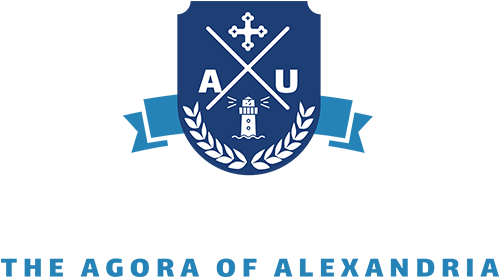Last updated February 3rd, 2025
Certificate in Contemporary Studies
The Certificate in Contemporary Studies is a dynamic program designed to explore the complexities of the modern world. Through a multidisciplinary approach, students engage with current social, cultural, and political issues, gaining a comprehensive understanding of the forces shaping our global society. With a focus on critical thinking and analysis, graduates of this certificate program are equipped to navigate and contribute to the ever-evolving landscape of contemporary issues and make informed decisions that impact the world around them.
Insightful Synopsis
Overview
The Certificate of Contemporary is a short-term graduate program focused on the intersection of contemporary studies and Eastern Christian communities. The program provides students customizable training through a set of interdisciplinary course offerings in Eastern Christian studies appropriate to educators, church or parachurch ministries, and personal enrichment.
Achievement Results
Outcomes
The Certificate in Contemporary Studies program outcomes are intended to prepare students to:
- Recall a basic knowledge and matters important to the history, culture, and theology of early and Eastern Christianity by engaging in interdisciplinary coursework.
- Explain ideas and concepts pertinent to Orthodox Christianity in a contemporary setting.
- Utilize research methods and theoretical frameworks rooted in Eastern Christian Studies for engaging contemporary paradigms.
- Think theologically and critically about the Orthodox Christian tradition both historically and within contemporary church and society.
- Construct and defend a position rooted in Orthodox Christian tradition as it intersects with contemporary issues.
- Produce new and original work articulating a holistic understanding of Orthodox Christian theology as it pertains to the contemporary world.
The courses listed here are indicative, and there is no guarantee that they will run for the current academic year. Students will take the courses in the order they are made available.
Elective Courses
Students choose Two courses from the followingThe Christian Doctrine of God and Diversity
The Christian faith confesses a Trinitarian God who is a diversity of persons in unity. This doctrine must present Christians with a model of appreciating diversity while also being rooted in a unity. This course traces the development of the Christian doctrine of God and related themes from Scripture to the 20th century. The course pays close attention to significant texts in the Christian tradition to discussions of the doctrine of the trinity and its relationship to diversity. We explore how our Trinitarian faith should be lived daily by reflecting on contemporary challenges surrounding diversity of religion, sexuality, culture, and biodiversity.
Suffering and the Scriptures
In this course, we will be examining the phenomenon of human suffering as our approach to encountering the scriptures, focusing on the Old Testament. By exploring the notion of suffering in the human condition, we will unlock some of the more important points of Christian theology that will provide us with the exegetical framework for reading, understanding, and integrating the Old Testament narrative into our lives.
Healing and the Word
This course looks at the matter of the textualization of the incarnation event as the remedy for the ailing human condition and is a companion piece to the course Suffering and the Scriptures. In this course, students will approach the message of the Gospel from the lens of healing, examining the formation of the New Testament in light of the early Christian movement amidst the backdrop of the emergence of rabbinical Judaism and the transition from Hellenic to Roman rule in the region.
From Cult to Culture: Re-appropriation in Orthodox Liturgy Today
This course examines the fundamental elements of Eastern Christian worship as it developed in the early centuries of the Church, in order to historically ground subsequent theological discussion of contemporary renewal. After several weeks exploring the common repository of Orthodox liturgical tradition, we consider examples of current scholarship on the extant Rites in use among the Orthodox and Eastern Catholic Churches: Armenian, West Syrian, Coptic, Ethiopian, East Syrian and Byzantine. The selected readings showcase key scholars in the field, highlight the value of comparative and interdisciplinary methodologies, and illustrate the challenges of integrating history and theology with pastoral practice. The final weeks invite students to synthesize what they have learned by means of reflection on their own identity as worshippers in the modern world—with all its challenges: how does the beauty of the Lex Orandi (“rule of prayer”) relate to the truth of the Lex Credenda (“rule of belief”), while also cultivating the goodness of an authentic spirituality, that is, a faithful and fruitful Christian Lex Vivendi (“rule of living”)?
Church, Culture and Tradition
Church, Culture, and Tradition is a 3-credit module, which aims to investigate the meaning of the Church and its diverse expressions through a study of ecclesiology, Tradition and culture. The module will start by defining the term ‘Tradition’ followed by an overview of the true identity of the Church and its expression within different contexts throughout history. The module will then discuss our contemporary context and the appropriate ways of engaging with a theology of incultration by incarnating in a multi-cultural and pluralistic society.
Anthropology of Asceticism
One definition of asceticism is that it is a practice of bodily discipline and self-deprivation, usually for religious purposes. Some ascetical practices include prayer, fasting, prostration, and night – vigil. While asceticism plays an important role in cultivating morality in Christianity generally speaking, reducing these practices as simply reflections of religious belief diminish their broader social importance. In order to understand asceticism, this course uses anthropological tools to contextualize the wider conditions that influence how ascetical practices come to be understood in different Orthodox Traditions. What do people of various socio-cultural and Orthodox Traditions understand asceticism to be? How are ascetic practices linked to the wider-socio-political conditions of respective communities? How can we understand morality in relation to asceticism? Using ethnographic and historical examples, the course considers these questions as they relate to a wide range of Orthodox contexts. It offers an overview of the ways in which anthropological analyses of ascetical life can provide scholars new perspectives with which to make sense of larger questions of theology, religious identity, politics, imagined community, nationhood, and belonging
Human Will and Divine Will
In this course, we will be examining the human will, divine will, and the paradox notion that arises from discussions on the freedom of the human will. The approach to the topic is grounded in how this phenomenon is envisioned in scriptures, then interpreted by church fathers, and medieval archimandrites in different schools of philosophical thought. By exploring the notion of human will (human desire) and divine will, the course offers venue into how to think about larger questions of what it means to be human, especially in our current technological world.
Theology and Encounter: Navigating the Christian Reality
This course explores the epistemological grounds for understanding Christianity’s view of concrete truth. The concrete reality of truth in Christianity is fully revealed through a life of encounter and rational expression. While encounter is a mystical experience, theological expression is a colorful tradition that utilizes a spectrum of human philosophies and ideologies. This course traces the commonality of the Christian encounter while investigating the diversity of theological expression fr om ancient times until our post-modern frames of mind.
An Orthodox Approach to Theology and The Arts
What is beauty? Why does it matter so? How does it relate to the Christian experience of God and the Church’s interpretation of divine revelation? What role should the arts play in contemporary Orthodox faith and witness? This course engages such perennial questions (and more) through a survey of the sources, themes and media characteristic of Eastern Christian aesthetic theory and practice, drawing also upon pertinent Western dialogue partners.
THEIR WORDS
Students' Life-Changing Experiences
See why Orthodox education at this pioneering university is so valuable for life after graduation.
Studying at HTC helped me to perceive the church as a living body of Christ and taught me how to embrace that, and to look at every member of the church as a true member and the one I have to love.

Fady Ghattas
Alumnus
Sample Certificate Study Plan
| Term 1 – Fall | Term 2 – Spring | Term 3 – Summer |
|---|---|---|
| Required Course 1 | Elective 1 | Elective 2 |
| Required Course 2 |
How to Apply?
01
You Apply
Tell us a little about yourself and we’ll help with the rest. Our convenient online application tool only takes 10 minutes to complete.
02
We Connect
After you submit your application, an admissions representative will contact you and will help you to complete the process.
03
You Get Ready
Once you’ve completed your application and connected with an admissions representative, you’re ready to create your schedule.


